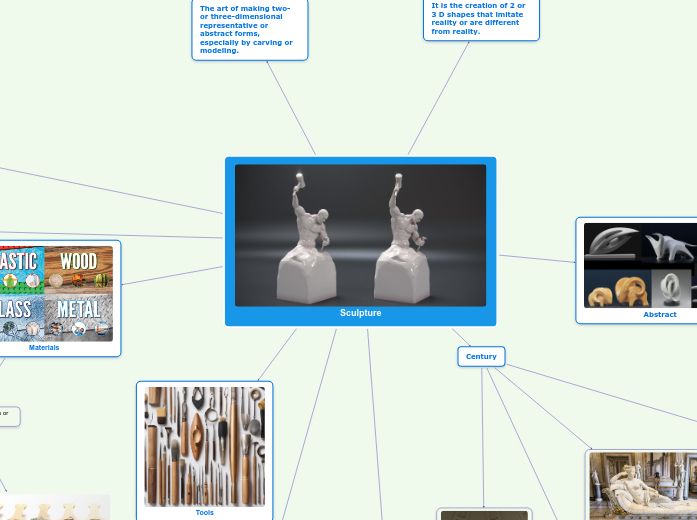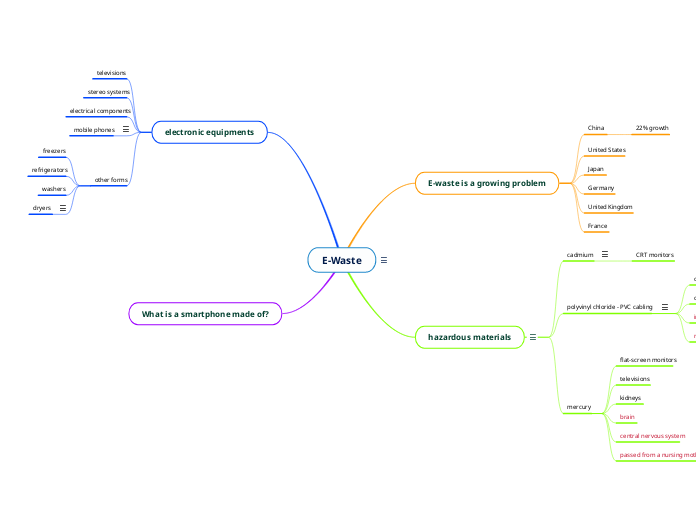Topic flotante
Sculpture
It is the creation of 2 or 3 D shapes that imitate reality or are different from reality.
The art of making two- or three-dimensional representative or abstract forms, especially by carving or modeling.
sculptor
A creative artist modeling, carving or sculpting.
An artist who makes sculptures
Energy
It is the action or force that transmits movement.
The strength and vitality required for sustained activity.
Expression
It is the ability to explain your ideas and feelings.
The process of making known one's thoughts or feelings.
Abstract
Art that does not literally represent the real world, free and personal style of the artists.
Art that does not attempt to represent an accurate depiction of visual reality
Century
Modernism
The artistic movement of renewal breaks with the past.
A style or movement in the arts that aims to break with classical and traditional forms.
Romanticism
It emerged at the end of the 18th century and reached its peak during the 19th century. It is characterized by an exaltation of emotionality, subjectivity, and individual freedom. It rejected imagination, fantasy, mystery, and the search for the sublime.
A movement in the arts and literature which emphasized inspiration, subjectivity, and the primacy of the individual.
Baroque
This style developed approximately from the end of the 16th century to the 18th century, standing out for its exuberant ornamentation, the use of dramatic contrasts and the search for emotion through art.
A highly ornate and often extravagant style of architecture, music, and art from the 17th century
Renaissance
Broad cultural movement that has its main exponent in the field of the arts.
The cultural rebirth that occurred in Europe during the 14th to 17th centuries.
Statue
It is the work made by a sculptor.
Muscles
Representation of the dynamics of the human body and its ability to move.
Tissues in the body that have the ability to contract, producing movement.
A carved or cast figure of a person or animal, especially one that is life-size or larger.
Realistic
Representing familiar things in a way that is accurate or true to life
That represents or imitates reality.
Tools
Devices or implements used to carry out a particular function.
Materials
The matter from which a thing is or can be made
Clay
Natural material that is easy to mold when wet to create shapes and figures.
A stiff, sticky fine-grained earth that can be molded when wet.
Metal
Properties that make metals highly valued in sculpture.
A solid material which is typically hard, shiny, malleable, fusible, and ductile.
Wood
One of the most resistant materials that comes from the tree.
The hard fibrous material that forms the main substance of the trunk or branches of a tree.
Stone
Material used to create sculptures is appreciated for its durability.
A hard, solid nonmetallic mineral matter of which rock is made
Objects
Things that can be seen or touched, which are usually solid.
Three-Dimensional
Having or appearing to have length, breadth, and depth









